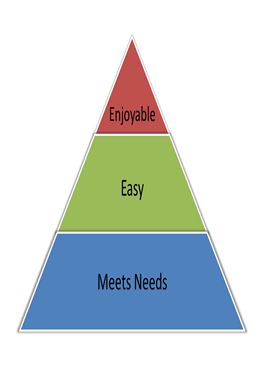by Jana Love
Something that is always relevant and seemingly misunderstood is the Customer Experience. Harley Manning and Kerry Bodine of Outside In defines this as, “Customer Experience is how your customers perceive their interactions with your company.” Here’s some compelling proof on why this topic deserves focus and understanding: Over a recent 5-year period when S&P 500 was flat, a stock portfolio of customer experience leaders grew 22%!
To further break down what’s the “customer experience,” it’s the product and services you offer, how you manage your business, and what your brand stands for. It ‘s what a customer perceives will happen when they try and buy your product, use it, and/or what would happen if there is a problem with it.
Years ago I purchased a high-end Toyota SUV. It was my leap from the mom minivan to the “you’ve arrived” SUV. I loved this car. But, my first couple of service appointments didn’t go well. So after 3 or 4 disappointing service department experiences, I decided it was time to see the manager. I made my appointment, had my list of unresolved items, and had a feeling of confidence that I would be heard and action would be taken. As I sat waiting for the manager, he finally strolled in, flops in his chair, did not greet me or look me in the eye, and asked, “What can I do for you?” I gave him the rundown of my repeated service disappointments. To my surprise, this service manager of a very large Toyota dealership, leaned up from his over relaxed sitting position and stated, “Well, we can’t make everyone happy.” That was the beginning and end of our meeting. The page two of this story- when I was ready to trade cars, still loving this car, I made the consumer decision to drive quite a bit further to another dealership and pay over $5K more for essentially the same vehicle at Lexus. My service department experiences at Lexus has kept me with them for years.
Using the example above, let’s look at how the 3 levels of a customer experience plays out. Inspired by Dr. Elizabeth B.N. Sanders, who developed this customer experience pyramid while getting her master’s degree.
- Enjoyable ~ “I feel good about this.”
- Easy ~ “I don’t have to work hard.”
- Meets Needs ~ “I accomplished my goal”

First Level: Meets Needs. This was clearly missed on several levels. I didn’t just buy a car, I bought into the belief that I had of the dealership, and the service department was a part of the trusted belief. I believed my car would be successfully serviced without reoccurring issues. When that didn’t happen, I then went to the belief that the service department would care enough to rectify my issues, thus improving my experience. I couldn’t accomplish my goals.
Second Level: Easy. It was perhaps easy to purchase the car, but maintaining “easy” left after my first service appointment and certainly after I attempted to consult with the service manager.
Third Level: Enjoyable. They accomplished enjoyment with the car, but lost it (sadly for good) with not being able to sustain it through the service experience.
The consumer game has changed and customers have more power and a lot more knowledge. The internet, online reviews, and social media have made it very easy for the customer to know almost more than the seller about its product, their competitors, and pricing. Companies need to embrace the bigger picture- understanding that good customer perceptions are based on total company involvement and successful execution of meeting their needs, making it easy, and keeping it enjoyable. How does your company deliver memorable customer experiences?

